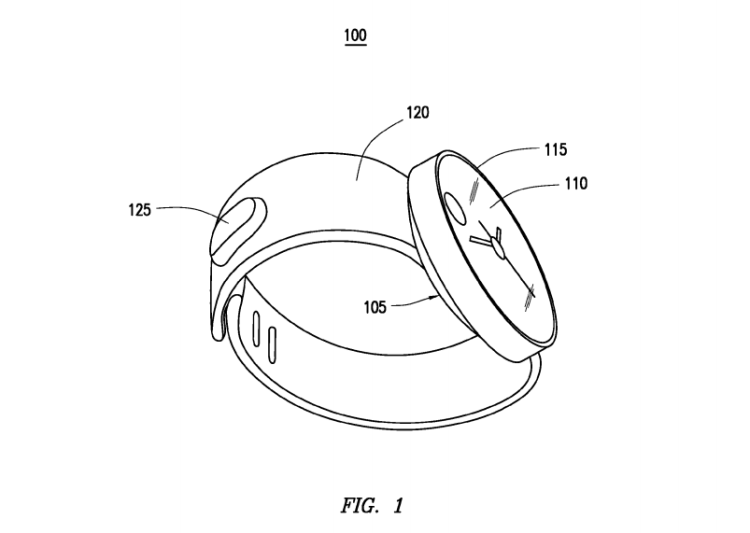Samsung has made progress in many ways with its wearable devices lately, and more improvements could be on the way.
Newly published patent applications show the device maker’s interest in enabling a smartwatch to take input based on gestures, which could pose a challenge to devices like the highly anticipated Apple smartwatch and Android Wear-based wearables.
The patents, published on Thursday and first filed in August, suggest a device packed with sensors that can enable the perception of information in several ways. It could prove to be many steps ahead of the of Samsung’s poorly received Galaxy Gear smartwatch and probably an improvement on the newer Gear Fit model.
A watch based on these new patents could accept input based on a touch of the screen, a tap on the bezel, and a rub on the wristband. But it could also understand numeric, heuristic, and pattern-based gestures, according to a diagram in one of the new patents. Even a thumbs-up sign or the movement of a fingertips in a certain direction could trigger a response in a Samsung smartwatch based on these designs.
All of these gestures would go through a “gesture priority decoder,” presumably to help the watch figure out which one is most important for a chip to process first at any given moment.
If a task is too complex for the watch to handle quickly, it could request for the processing to happen on another device — like a Samsung smartphone — over Bluetooth, Wi-fi, or near-field communication, according to one patent application.
And indeed, that could be possible if a device needs to identify an object a camera observes, measure how far way it is, pick up changes in distance from it, access information about it, and showing information about it onscreen. A patent application calls out all of those chores and more. Oh, and if the watch is near, say, a connected refrigerator, other functions could become possible. Or if a sign is in a foreign language, the watch could translate, one of the new patents shows.
A bevy of sensors for capturing all of this information could translate to short battery life. Good thing the various sensors could be turned on or off, according to one of the new patents.
Altogether, a wearable based on these new principles seem more observant and even more fun than what’s in existence today. Counting steps could get old after a while. But using a wristwatch like a tool for understanding the world could be just the sort of fascinating experience that could help Samsung capture consumers’ and even businesses’ attention as they look for the next amazing thing.
H/t: SammyToday
VentureBeat's mission is to be a digital town square for technical decision-makers to gain knowledge about transformative enterprise technology and transact. Learn More

